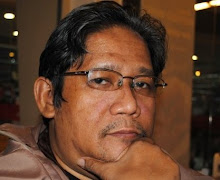Was popular broadcast journalist Ces Oreña-Drilon abducted in Sulu by suspected members of the bandit Abu Sayyaf Group as part of a “political fund-raising effort” by the former negotiators and now tagged principal suspects: Mayor Alvarez Isnaji and son Haider? (The Isnajis, police say, pocketed up to 60 percent of the supposed initial P5M ransom paid by the Drion family.)
Was Drilon simply ‘betrayed’ by their group’s guide who was supposed to bring them to their intended interviewee, top ASG commander Radulan Sahiron? (Justice Secretary Raul Gonzales claims Sahiron had “communicated his intention to surrender” two weeks before the Drilon abduction.
The easiest way would be to answer these questions in the affirmative, taking at face value all of the pronouncements of police investigating and considering the incident closed.
However, information reaching this writer from sources in the uniformed services and accounts of recent events point to the disturbing possibility that Drilon and company (which included Mindanao peace advocate Octavio Dinampo) were “used as bait” for at least one high-value target in the war against terror: Indonesian national Dulmatin, the Jemaah Islamiya electronics expert tagged as one of two bomb-makers in the deadly bombings in Bali Indonesia in 2002.
Dulmatin , who has a $10M bounty on his head, was last thought to have been injured, and possibly killed in a raid against the ASG IN 2007. The suspected remains of Dulmatin were even exhumed from a grave in Tawi-tawi and subjected to DNA tests which results were inconclusive.)
Fears that Dulmatin (or elements who trained under him) was still active were revived several weeks ago on May 29 when a bomb exploded just outside the military’s Edwin Andrews Air Base in Zamboanga City, killing two people and injured 23 others, including four engineers working on a project of the US Agency for International Development.
Investigators found evidence with the JI bomb expert’s ‘signature’ in the incident. Colonel Darwin Guerra, a senior counter-terrorist officer told reporters, "the bomb was hidden in a bag and was detonated by remote control using a cell phone," he said.
U.S. embassy officials would not say if they thought the USAID project was specifically targeted, but ambassador Kristie Kelly was described in news reports as “horrified” as she called the bombing a “terrible incident.”
One stark detail in the Drilon abduction which persists is that the man who initially acted as their guide, and then left them for reasons unknown was indeed a regular military intelligence asset, leading even Ces to comment hours after their release that “they were betrayed by people we trusted.”
Our sources tell us the sequence of events in the way Drilon and her group were “guided all through to Maimbung town and then literally handed over to 8 armed men indicate their interception was not coincidental.”
His writer’s sources reveal, “the movement was intended to test whether the presence of the television news crew would be able to draw out either Rahilon, at the very least, even the slippery Dulmatin if he is alive and operating in the jungles of Jolo.”
News accounts also show that at the height of the search operations for the kidnap victims, the US military deployed their unmanned Predator spy planes equipped with highly-sensitive remote imaging capability to support Philippine operations led by Western Command’s anti-terrorist Task Force Comet.
Professor Dinampo has, in the meantime, revealed in an interview of MindaNews editor Carol Arguilas that Drilon and her group were actually first brought to Bud (Mount) Daho, a long dormant volcano in Sulu. (http://www.mindanews.com/index.php?option=com_content&task=view&id=4612&Itemid=50)
The MindaNews report says professor Dinampo, when he was allowed to make a phone call to his non-government organization, the Citizen’s Peace Watch, had given a coded message about where they were being captive. The message, however, was left “undecoded” until their release.
It was only later when negotiations for their release progressed that the captives were brought from Bud Daho to the lowland tri-boundary area of Patikul, Indanan, and Talipao towns. (Bud Daho is a choice hiding place of Tausugs given its secure location, and historical importance being the site of a 1906 incident where an estimated 1,000 Moros were massacred by American troops on orders of Major General Leonard Wood. The centennial of the carnage was marked last March 13.)
Against this backdrop, with the public interest having shifted to the tragic sinking of the inter-island ferry Princess of the Stars, this possible untold story in the abduction of Ces Oreña-Drilon may actually be more than tangent to the continuing Philippine component of the United States’ war on terror and the ‘negative result’ of the intensified hunt for Dulmatin and ASG militants the previous two weeks.
This is because the second tranche of up to $4M in anti-terrorist funding support committed by the outgoing Bush administration has remained unreleased, with American authorities reported to be quietly “auditing how, and why, the earlier first $4M installment had been used by the Philippine police to purchase computer facilities.”
In fact no such ‘anticipated announcement’ of the additional anti-terrorist fund came despite President Bush having congratulated his Filipino counterpart “on her strong stand on counter-terrorism -- more than strong stand -- effective stand on counter-terrorism.”
Will the truth about the Sulu abduction ever be revealed? This is the question that awaits an answer before another major story breaks in Sulu.
Hello world!
-
Welcome to WordPress. This is your first post. Edit or delete it, then
start writing!
8 years ago















No comments:
Post a Comment